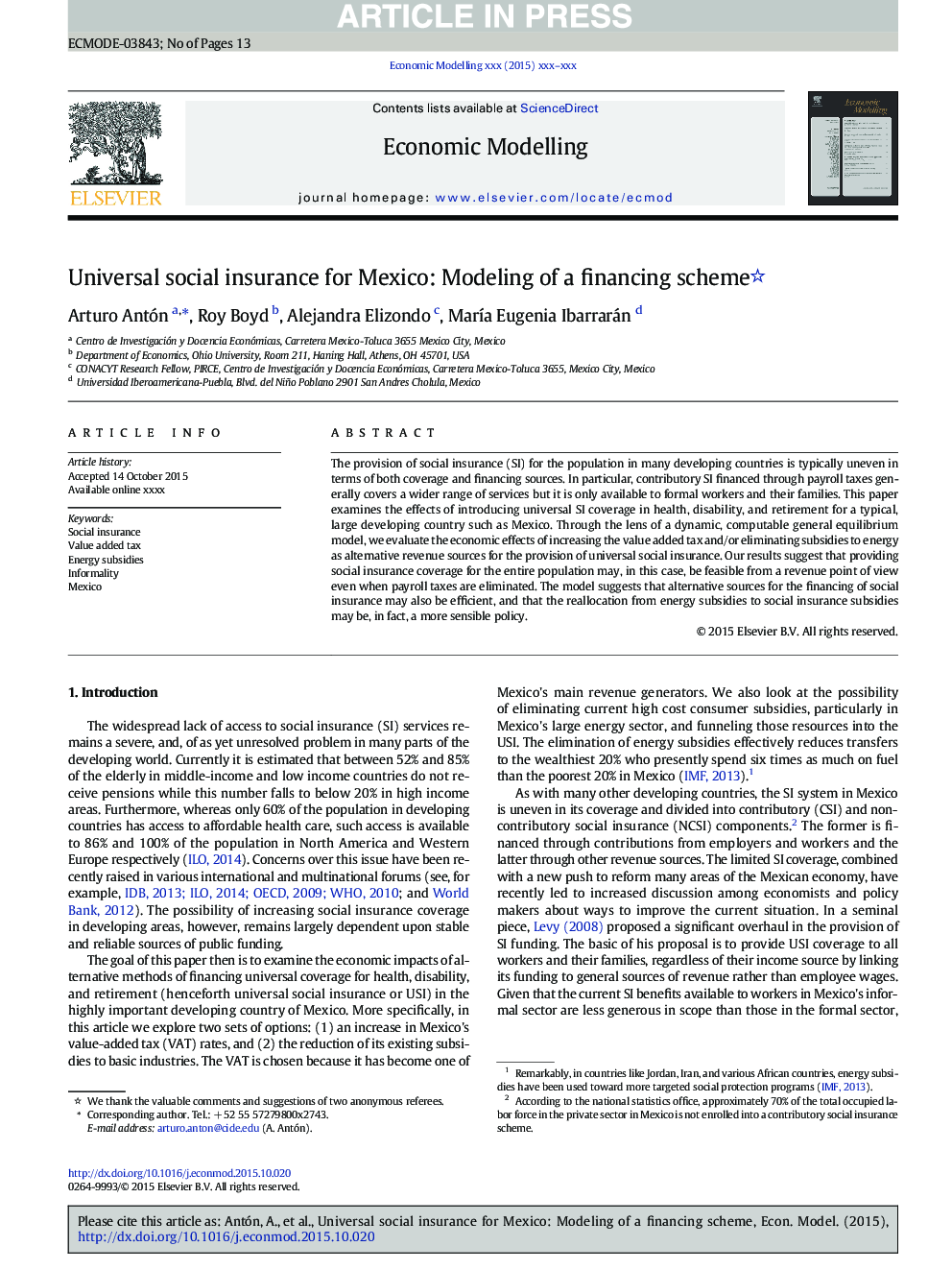| Article ID | Journal | Published Year | Pages | File Type |
|---|---|---|---|---|
| 5053680 | Economic Modelling | 2016 | 13 Pages |
Abstract
The provision of social insurance (SI) for the population in many developing countries is typically uneven in terms of both coverage and financing sources. In particular, contributory SI financed through payroll taxes generally covers a wider range of services but it is only available to formal workers and their families. This paper examines the effects of introducing universal SI coverage in health, disability, and retirement for a typical, large developing country such as Mexico. Through the lens of a dynamic, computable general equilibrium model, we evaluate the economic effects of increasing the value added tax and/or eliminating subsidies to energy as alternative revenue sources for the provision of universal social insurance. Our results suggest that providing social insurance coverage for the entire population may, in this case, be feasible from a revenue point of view even when payroll taxes are eliminated. The model suggests that alternative sources for the financing of social insurance may also be efficient, and that the reallocation from energy subsidies to social insurance subsidies may be, in fact, a more sensible policy.
Related Topics
Social Sciences and Humanities
Economics, Econometrics and Finance
Economics and Econometrics
Authors
Arturo Antón, Roy Boyd, Alejandra Elizondo, MarÃa Eugenia Ibarrarán,
